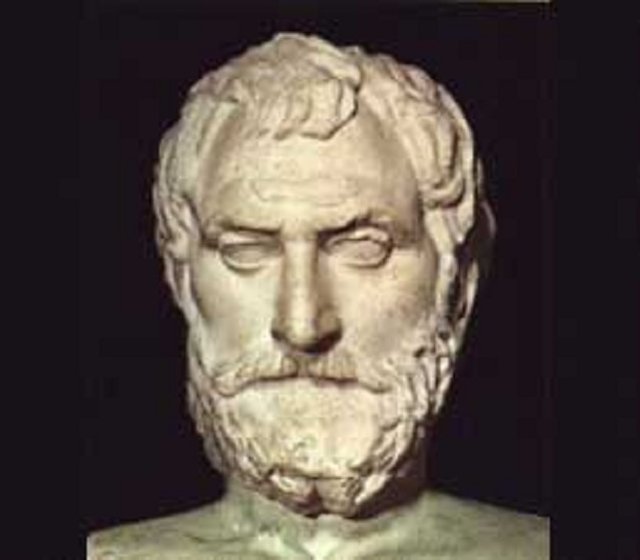Ancient philosophy. Thales - the water as the primary /last part /
In the Indian philosophy, there is more than one thought that the beginning of everything is water. "The most positive and at the same time the primary element of Vedic cosmogony, seems to be the thought of an initial water, a chaotic mass that exists by its own power, without an opponent in which it engages stirring, and thus the seed of the spirit arises, and then through it becomes from the non-existence. " Also in an Egyptian tradition, it says, "In the beginning, there was neither heaven nor earth. Shrouded in dense darkness, it filled all the boundless primordial water that contained at its bottom the male and female embryos or the beginning of the future world. "
Other writers today point out that for a Milet and a seafarer, nothing was more natural than to accept water as a basic element and a major element of the world because he was observing the element and the vast expanse of the sea. On the other hand, the water with its constant passage into the three aggregate states: gaseous, liquid and solid, best reflects the possible states and the whole material existence. But no matter what the motives are, it is still a matter of Thales claim that everything is water. The second philosophical wisdom of Thales, again according to Aristotle, is his teaching that everything is filled with gods, demons and souls. This testimony is important to us in two respects. On the one hand, it shows that Thales' philosophical views did not affect his belief in the gods, but only related to the essence of material nature. On the other hand, it shows us that he also perceived the matter itself as animated and animated. As it is known, such a view that does not separate matter from power and life and perceives matter itself as being animated is called hypsychism or hylo + zoe life / specifically, it is known that Thales attributed a soul to matter.
It is said that matter is not an inert beginning, as it has been perceived for centuries later, but a dynamically moving, animated beginning, which by itself and in itself, by its inherent powers and properties, generates all the diversity of the material world . With this conception, Thales is undoubtedly close to the dialectical understanding of matter without being a materialist himself. That Thales was not a materialist shows us some other statements that have been transcribed in his antiquity, even though he is not quite sure that they really belong to him. Diogenes Laert says that Thales saw happiness in three things: a healthy body, enough material goods and an educated soul. The oldest of all things, said Thales, is the Godhead, since it did not arise. The best is the world that is the work of the Godhead; the greatest is the space that envelops everything. The fastest is the spirit that quickly penetrates everything; the strongest is the need that overcomes everything; wisdom is the time-it reveals everything. The best and most just living is then "when we do not do what we do in others". "Avoid Guaranty".
Even if we doubt that these thoughts belong exactly to Thales in this form, we have no reason to doubt that they are in the spirit and character of his philosophy that the ancients well knew. All the more so that the question of belief or unbelief in God was then universal, very important, and therefore, if Thales was an atheist, would have made a great impression and would surely be remarked by the then authors.

Great
Upvoted.